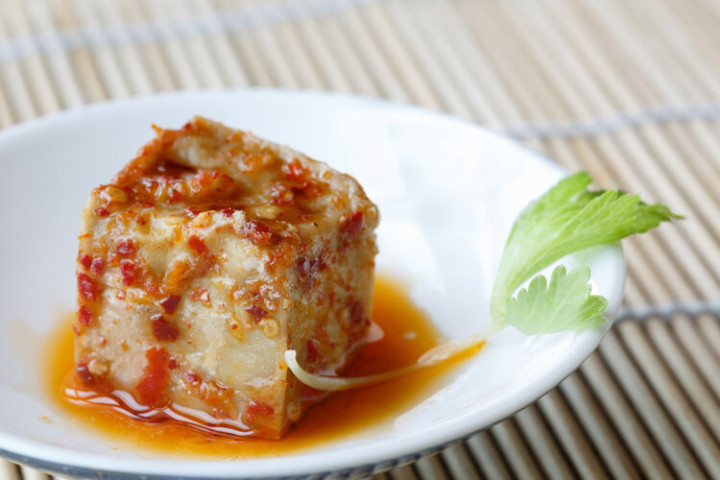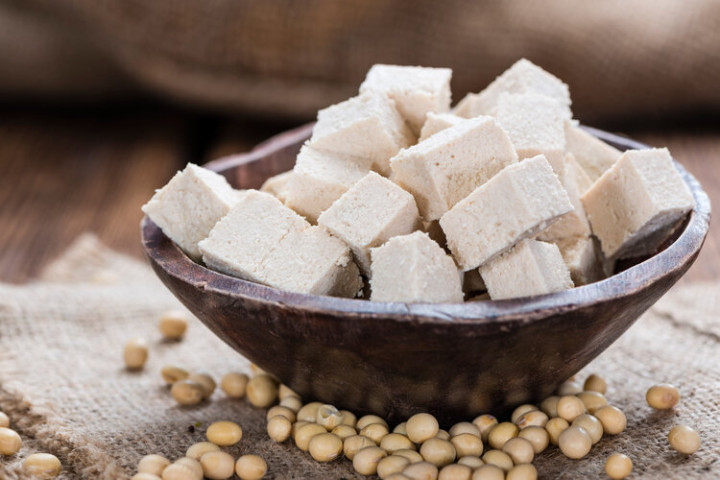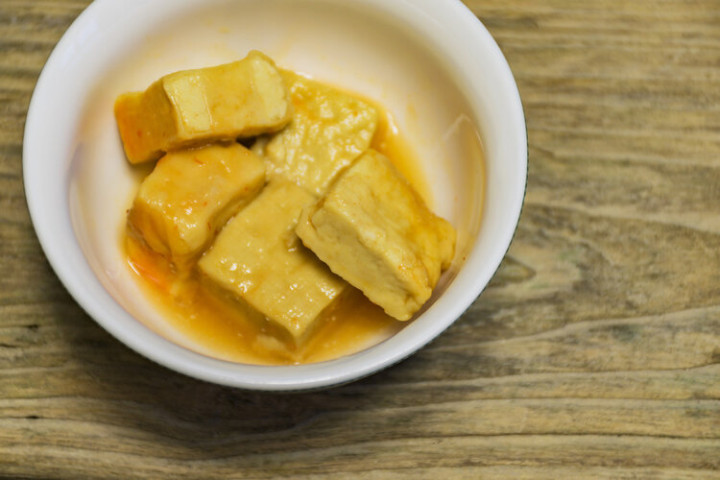Preserved fermented bean curd, an artifact that grew up as a snack, was rated as the most disgusting food by foreigners? !
Sweden once opened a “disgusting” food museum, displaying more than 80 kinds of exotic foods from all over the world. Many Chinese delicacies are on the list, including fermented bean curd.
Preserved bean curd actually has the reputation of “Oriental cheese” in the world, but there are many rumors about it. Many people think that fermented bean curd is made from mold and contains nitrite, which can cause cancer. is that true?

I. Is fermented bean curd a moldy food? Does eating cause cancer?
Before we understand this, we need to know how fermented bean curd is made.
The predecessor of fermented bean curd is actually tofu. Cut the tofu into equal-sized pieces and put them in a container to cool completely. Then spray the artificially cultivated Mucor species onto the surface of the tofu and let it inoculate on the surface of the tofu. Then put the tofu into the culture room, and after about 36 to 48 hours, the surface of the tofu will be covered with white mycelium.
Finally, knock down the mycelium on the surface of the tofu, let it wrap the tofu, put them together in a clean container, add salt and seasonings, seal it for 3 to 4 months, and then ferment Success, the production of fermented bean curd is completed.
Seeing this, I believe some people will say that there is mold in the fermented bean curd. Doesn’t this mean that fermented bean curd is an unhealthy food?

In response, Pa Lize, former deputy director of the Chronic Disease Prevention and Health Management Institute of the Xinjiang Uygur Autonomous Region Center for Disease Control and Prevention The rumor has been refuted that the mucor mold growing on tofu is not harmful to health. The main function of these molds is to decompose the protein in tofu, increase and produce nutrients such as amino acids and B vitamins, which is somewhat similar to brewing soy sauce and soybean paste. There are rumors about fermented bean curd, in addition to the mold contained in it that is harmful to health, there are also claims that the nitrite content in fermented bean curd is very high, and long-term intake will lead to cancer in the body. Is this statement credible? Second, fermented bean curd also contains carcinogen nitrite? Experiments show the truth
Nitrite is a general term for a class of inorganic compounds, which are white, light yellow powder or granular substances, salty and easy to taste Dissolved in water. Acute nitrite poisoning can oxidize hemoglobin into hemoglobin yolk, causing patients to have symptoms such as headache, nausea, vomiting and diarrhea, and in severe cases, respiratory paralysis, convulsions, coma and other symptoms; High intake of nitrite can also easily synthesize N-nitrosamine carcinogens in the stomach, leading to an increased risk of cancer.

Qilu.com’s “Life Survey” channel once conducted a study on fermented bean curd, and each selected a bottle of unsealed one. Monthly fermented bean curd and two bottles of unopened fermented bean curd purchased from the supermarket as samples. The investigators then tested the three fermented bean curds using rapid nitrite test paper. No nitrite was found in the fermented bean curd.
The raw material of fermented bean curd is soybean products, which belong to leguminous crops. Compared with vegetables, fruits and grass crops, the nitrite content is lower, and the intracellular protein synthesis of leguminous crops is strong, which can convert nitrate into amino acids. Under the combined action of these factors, the fermented bean curd will be decomposed. Not easy to produce nitrite. Appropriate consumption of fermented bean curd in life will not only bring no additional carcinogenic risks to health, but will also bring certain benefits to health. What are the specific ones? Third, the fermented bean curd known as Oriental cheese, the nutritional value cannot be ignored 1. The nutritional value is not inferior to cheese
Cheese is an animal fermented protein food, which contains cholesterol, fat The content is relatively high, and fermented bean curd is made from soybeans, which is rich in protein and does not contain too much cholesterol and fat.
2. Easier to digest and absorb
The protein molecules in soybean are larger, and it is difficult to be absorbed by the body after entering the body. The fermented bean curd requires the participation of microorganisms in the fermentation process. These substances can make the protein molecules smaller, which can be better absorbed and digested by the body.
Since eating fermented bean curd can bring certain health benefits, does this mean that it is safe to eat a lot of fermented bean curd every day? of course not! These three things must be paid attention to.

Fourth, how to eat fermented bean curd more at ease? 1. Control the amount of fermented bean curd, and do not exceed the standard salt
The salt content in fermented bean curd is relatively high, and the daily intake of fermented bean curd needs to be controlled, and it is recommended that the daily intake should not exceed 1 piece.
2. Choose a good quality fermented bean curd
Good fermented bean curd will taste smooth, while some bad fermented bean curd will taste There are sour, foul and other odors. Once you find that the fermented bean curd appears green and black, you must not buy it.
3. Some people eat less fermented bean curd is a high-purine and high-salt food. For people who suffer from high blood pressure, gout and peptic ulcer, try to eat less.
To say that fermented bean curd is “disgusting” is biased, and it is even more nonsense to say that fermented bean curd is carcinogenic. Regarding the “black pot” on fermented bean curd, it can be officially removed. For most ordinary people, eating fermented bean curd properly on a daily basis will not bring additional risks to health.
References:
[1] “On nutritional ingredients, fermented bean curd is not easy! Don’t miss these benefits”. Guangdong Health Online 2021-10-24
[2] “What are the miraculous benefits of eating fermented bean curd? Nutritional value analysis of fermented bean curd”. Health Master